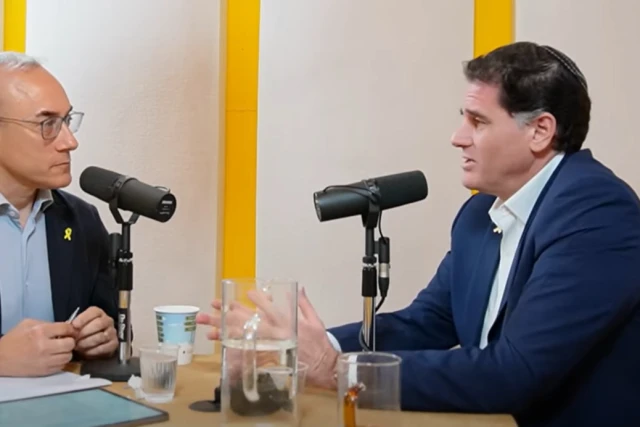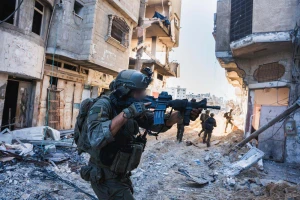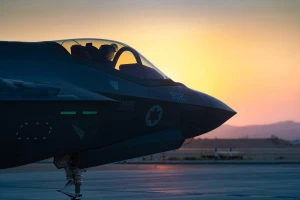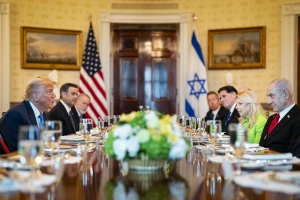Israel immediately began considering Iran strikes after Oct 7; Hamas removal is non-negotiable, says Strategic Affairs Min. Dermer
Dermer: After campaigns vs Hamas, Hezbollah & Iran, Israel might be stronger than ever

Israel’s Strategic Affairs Minister Ron Dermer is widely viewed as the person closest to Prime Minister Benjamin Netanyahu and is uniquely positioned to give insight into the premier's decision-making process throughout these historic years of war.
In another English-language interview on the Dan Senor podcast, the American-born Dermer talked at length about the war against Iran, which he said isn’t “the same country as a month ago,” as well as the negotiations with Hamas, which he is leading on the Israeli side.
Asked whether his thinking had changed since Oct. 7, Dermer said that Hamas’ invasion highlighted the fact that Israel had been facing more than one existential threat, in addition to the Iranian nuclear program.
“That attack, I think, did pose an existential threat to Israel because it kind of pierced the wall that we had built,” he said, referring to the famous concept of the “Iron Wall” put forward by one of Israel’s founding fathers, Ze’ev Jabotinsky.
“What Israel has to do is build up a wall, an iron wall… and eventually when they realize that they can't beat us, that's when they will actually open the door towards a peace,” he explained.
The Abraham Accords were the “culmination of the iron wall, where Israel's strength, its security strength, its technological strength, economic strength led to a peace where Israel wasn't making these big territorial concessions in order to make peace,” he said, also noting that peace with Saudi Arabia seemed close at hand before the war.
The successful invasion, the murder of over 1,000 Israelis, and the kidnapping of hundreds more, significantly damaged Israel’s deterrence.
“The perception of Israel's weakness, how that's going to affect calculations in the region, can be very, very dangerous because all the buzzards that are circling Israel that would love a chance to attack a bleeding Israel, that was my big concern,” Dermer said.
“I saw the puncturing of that wall, and the fear was that now everyone was going to rush in, and reversing that was very critical at the beginning of the war.”
To close this “breach” in the wall, Israel needs to ensure that Hamas loses its control over Gaza, he continued.
“It doesn't necessarily mean to kill every Hamas terrorist who's running around there. But if Hamas lost Gaza, that's the minimum necessary in order to achieve a victory… the minimal requirement is: The force that did this to you on October 7 is no more. They've lost control of Gaza because of their decision to act.”
Addressing recent opinion polls indicating a majority of Israelis want to end the war with a hostage deal, Dermer replied, “Everybody in Israel wants to end the war. The question is, are you going to end the war with a victory for you or victory for Hamas?”
“When you dig down and you ask people: Wait a second, Hamas will stay in power. We're not going to have any troops in Gaza. They will be able to rearm and they'll be able to do October 7th attacks again. I think the numbers will be different,” he added.
The discussion turned to the Iranian involvement in the Oct. 7 attack, where Dermer noted that Hamas leader Yahya Sinwar “jumped the gun.”
Had Iran managed to coordinate its forces and allied groups on all fronts, “the situation could have been infinitely worse, infinitely worse,” Dermer acknowledged.
“Fortunately, our military rallied very fast and were able to strike back in Gaza, and then systematically deter in the north Hezbollah, act very forcefully and sort of grind Hamas down in Gaza, and then turn its attention to the north, which had the result that it had in Syria, and then ultimately turn the attention towards dealing with the big threat, which was Iran, which the Prime Minister and I discussed right away, right after October 7.”
Dermer noted that Netanyahu had focused on the Iran threat long before the Oct. 7 war began, and therefore was primed to act against the regime at the first opportunity.
“Had the Prime Minister been commander-in-chief, like the American president is, he would have acted 15 years ago,” Dermer said.
“He came in, in 2009, determined to deal with this threat. And he came up against the wall of opposition, and they had the view that this should be done by the Mossad, and there can be delaying operations and all stuff.”
In high-level discussions after Oct. 7, the option of striking Iran directly was proposed quickly.
“If you don't deal with Iran and you don't deal with its support for the proxies, then what is the impact that you're going to have? If they can just sort of rebuild this stuff over and over and over again?”
For now, after the strikes on Iran’s nuclear program, Dermer concluded that the country might be stronger than it’s ever been “in terms of the perception of Israel's deterrence.”
“I think that we have removed that threat for the foreseeable future, particularly if we do the things that we need to do now in the aftermath of that attack. But Iran is not the same country that it was last month.”

The All Israel News Staff is a team of journalists in Israel.
You might also like to read this:










